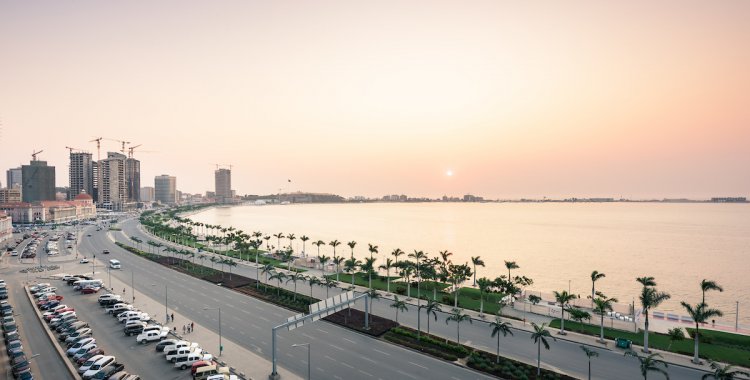The results of the 18-month study "Accelerating the SDGs in Angola" were presented this Tuesday at a ceremony shared by the Ministry of Planning and the United Nations.
Speaking to the press, the Secretary of State for Planning, Luís Epalanga, highlighted that the study aimed to identify ways of directing investment to areas that can accelerate the SDGs in Angola, referring to education, health, basic sanitation, social protection, gender, agriculture, water and electricity.
"Once investment is directed to these areas, we can accelerate the implementation of the SDGs in Angola," stressed Luís Epalanga, stressing that the study also identified the need to increase funding for the SDGs, with the mobilisation of public and private resources.
The minister highlighted that it was fundamentally recommended that investments of 2 percent to 5 percent of the Gross Domestic Product (GDP) be made in these areas that accelerate the achievement of the SDGs.
According to Luís Epalanga, investments are being made, but "probably not enough", due to the global financial situation, and mainly in sub-Saharan African countries, and a diversified financing framework is also recommended in the case of Angola.
"Angola has challenges, but we are developing actions to accelerate the implementation of many objectives, mainly those related to food security, poverty and the development of human capital", he said.
The Secretary of State for Planning said that Angola will base itself on a medium-term financing expenditure framework, that is, "a framework that allows for the forecast of expenditure to be developed over the next five years", and that it is also essential to have "a medium-term fiscal framework", to understand "the sources of financing over the next five years, and to allow debt management to be carried out, taking into account these sustainable financing objectives".
In turn, the United Nations Resident Coordinator in Angola, Zahira Virani, said that investment is needed to accelerate and achieve the 17 SDGs of the 2030 Agenda, insisting on the diversification of the economy.
"We have many challenges, but the diversification of the economy is one that we have to focus on. We also have to invest more in protecting the environment and creating jobs, especially for young people," she said.
Zahira Virani considered that food security "is absolutely fundamental" and is part of the cooperation framework with Angola.
"Unfortunately, we have only reached 25 percent of the SDGs, there is still a long way to go, but now we have a new NDP [National Development Program 2023-2027, of the Government], a new cooperation framework, Covid-19 has passed and we hope that in this report to be presented in 2025 we will have good news," she said.
The basis for the preparation of Angola's 2nd National Voluntary Report was also launched this Tuesday, to be presented at the UN headquarters in New York in 2025. This instrument serves to present Angola's experience with regard to actions being developed to achieve the SDG targets.
"For example, in the province of Cunene, to combat the effects of drought, there is a set of infrastructures that are being developed and that, once completed, we will be able to put an end to and improve the population's access to water and improve their living conditions", pointed out the United Nations Resident Coordinator in Angola.
Angola presented the first report in 2021, with which it showed the steps already taken towards the implementation of the 2030 Agenda, the challenges it is experiencing and success stories.







